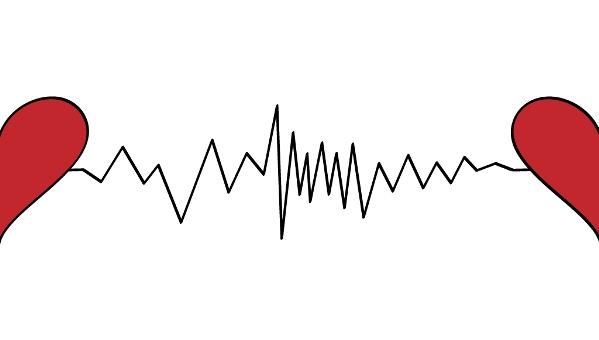The Medical Minute: Heart health tips for your Valentine

Every year millions struggle with what to buy their significant other for Valentine's Day. Rather than give into the old clichés of chocolate and flowers, this year show you care by sharing healthy heart tips with the person who captured yours.
Dr. Peter Alagona, Jr., a cardiovascular disease specialist at Penn State Hershey Heart and Vascular Institute, offers advice on how to embrace a heart healthy lifestyle that you can both benefit from.
Get moving
You do not have to run five miles a day; find what works for you. All it takes to start is getting off the couch.
“Any amount of activity you do is better than none,” Alagona says.
He suggests aerobic activity, like walking, swimming, biking, or anything that works the heart and lungs, which is better for long-term health.
Pay attention to what you’re eating
Portion control, will power, making it a lifestyle and finding what works for you are key.
“Everything to moderation and nothing to excess,” Alagona says.
He recommends the Mediterranean and the DASH (dietary approaches to stop hypertension) diets to his patients. The plans stress eating the appropriate amount of calories, eating more fresh fruit and vegetables, eating less red meat (and when you do, make sure it's lean), avoiding simple sugars and simple carbohydrates, and embracing good carbs, good fats, and fiber.
Translation: Lose the white flour (typically found in candy, cake, etc.) and sugar-ladened soft drinks; increase fruits and vegetables at every meal and in between meals as snacks; and if you do indulge in a steak, make it the filet mignon and not the rib-eye.
But Alagona is realistic.
“No one can go their whole life without dessert,” he said. He suggests people cut back and find substitutes for their favorite foods:
- Choose good carbs over bad by considering whole wheat replacements for breads and pastas.
- Find sources of good fat: the polyunsaturated fats found in fish (two servings a week) or walnuts, un-blanched almonds and other nuts make good replacements for your daily snacks.
- Increase fiber in your diet.
Watch your weight
Losing weight and maintaining a healthy weight go hand in hand with diet and exercise. Alagona reminds patients that they should adjust their calorie intake according to activity level and goals. You have to use more calories than you eat to lose weight.
“Everybody’s looking for some mystical answer and that’s why diet crazes come and go over a few years–nothing stays,” he says. “The bottom line: no matter what you do, you need to take in an appropriate amount of calories to maintain a reasonable weight.”
Stop smoking
“If you’re a smoker, every day away from smoking is better for you,” he says. Even someone who has smoked for 35 years can stop and improve their health status every year after. “It’s never too late,” he says.
Educate yourself
See your doctor and have your blood pressure, cholesterol and blood sugar checked regularly. Alagona suggests not getting hung up on numbers and results, but to focus on asking the right questions.
- What does the number mean?
- Is there a problem?
- Can you explain the problem/describe it to me?
- What are we going to do about it?
- How can we treat it?
- What is the prognosis for the future?
Most importantly, make sure you understand the information and follow your doctor’s advice. Being educated is important. But in a world where the Internet offers more information than anyone can really digest, Alagona recommends seeking advice only from reputable online sources like the American College of Cardiology’s patient site at Cardiosmart.org or the health library at PennStateHershey.org.
The Medical Minute is a weekly health news feature brought to you by Penn State Milton S. Hershey Medical Center. Articles feature the expertise of Penn State Hershey faculty physicians and staff and are designed to offer timely, relevant health information of interest to a broad audience.
Up next week: The health benefits of acupuncture.
If you're having trouble accessing this content, or would like it in another format, please email Penn State Health Marketing & Communications.
